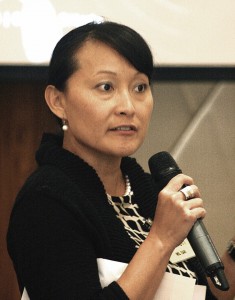
APCSS Associate Professor Jessica Ear speaks to the group.
See Also: Director Leaf meets with alumni in Sri Lanka and the Maldives
Disaster Management practitioners from Bangladesh, Nepal, Pakistan, India and Sri Lanka came together in Colombo, Sri Lanka, March 3-5 to exchange partnership ideas to help reduce risks from natural disasters. The event focused on creating new partnerships not only among different countries, but also between the public and private sectors.
“We recognize that no one country can do this alone. We are committed to working together across sectors, across interests and nations to meet the challenges of disaster risks,” said Rachna Korhonen, Acting Deputy Chief of Mission at the U.S. Embassy Colombo, which helped coordinate the conference.
Jessica Ear, faculty member with the Asia-Pacific Center for Security Studies, added, “With densely populated cities, challenging geography and vulnerable infrastructures, a large-scale natural disaster in South Asia has the potential to set back development and destabilize progress on a tremendous scale.”
Ear served as APCSS academic lead for the Colombo workshop titled, “Building Partnerships in South Asia Disaster Risk Reduction.” The event brought together defense, government, civil society and private sector leaders for work centered on three tasks:
- Identify and clarify DRR partnership challenges and opportunities;
- Integrate effective partnership strategies and best practices into current frameworks;
- Advance DRR partnerships at national and regional levels.
The workshop aligned with the intent of the Hyogo Framework for Action (HFA), a 10-year plan endorsed by the U.N. General Assembly in 2005 and post-Hyogo, 15 year framework adopted in Sendai, Japan at the recently concluded World Conference on Disaster Risk Reduction. The plan encourages multi-stakeholder partnerships to reduce disaster risks. Such relationships, Ear stated, can facilitated vital DRR-related information-sharing, multinational training and planning efforts, and pooling of resources.
APCSS faculty and invited experts presented the latest regional trends, identified risk reduction versus response techniques, and shared successful partnership case studies. Speakers included subject matter experts from the United Nations agencies, civil society organizations and private sector.
In group breakout sessions, teams identified and documented nation-specific DRR challenges and gaps, as well as recommendations for multilateral partnering. The ultimate objective, Ear stated, is integration of these recommendations in each nation’s approach to disaster risk reduction; this, in addition to sustaining partnerships and networks to include information-sharing initiated at the workshop.
Major Gen. L.B.R. Mark, from the co-host institution, Sri Lanka’s Disaster Management Centre, stressed the importance of bringing other countries together. “I think this workshop is an ideal platform to build friendship and cooperation that deals with all kinds of disasters,” said Major Gen. Mark.
Ear added, “While the need for improved multi-sectoral collaboration with governments is clear, there are still many questions on how to sustain and scale partnerships for risk reduction and resilience-building…I believe this workshop enabled a group with a significant stake in reducing disaster risks to address those questions.”
“Our first-ever APCSS workshop in Sri Lanka was a great opportunity to leverage our alumni connections and ability to convene a cross-sector group to enhance Disaster Risk Reduction,” said APCSS Director Lt. Gen. (Ret.) Dan Leaf.
The 52 workshop participants agreed to remain in touch over web-based discussions to follow up on progress of their recommendations.APCSS is a Department of Defense institute that addresses regional and global security issues. Military and civilian representatives from the United States and Asia-Pacific nations participate in a comprehensive program of executive education, professional exchanges and outreach events, both in Hawaii and throughout the Asia-Pacific region.
The Center supports the U.S. Pacific Command by developing and sustaining relationships among security practitioners and national security establishments throughout the region. APCSS’ mission is to build capacities and communities of interest by educating, connecting and empowering security practitioners to advance Asia-Pacific security. It is one of the Department of Defense’s five regional security studies centers.
Since opening in 1995, more than 9,300 alumni representing over 122 countries and territories have attended APCSS courses and workshops. In South Asia countries represented in this workshop, APCSS has alumni in Bangladesh (283), India (290), Nepal (289) and Sri Lanka (270).
-END-


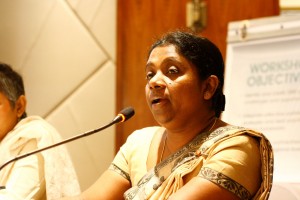
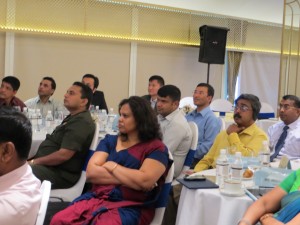
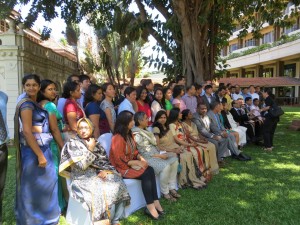
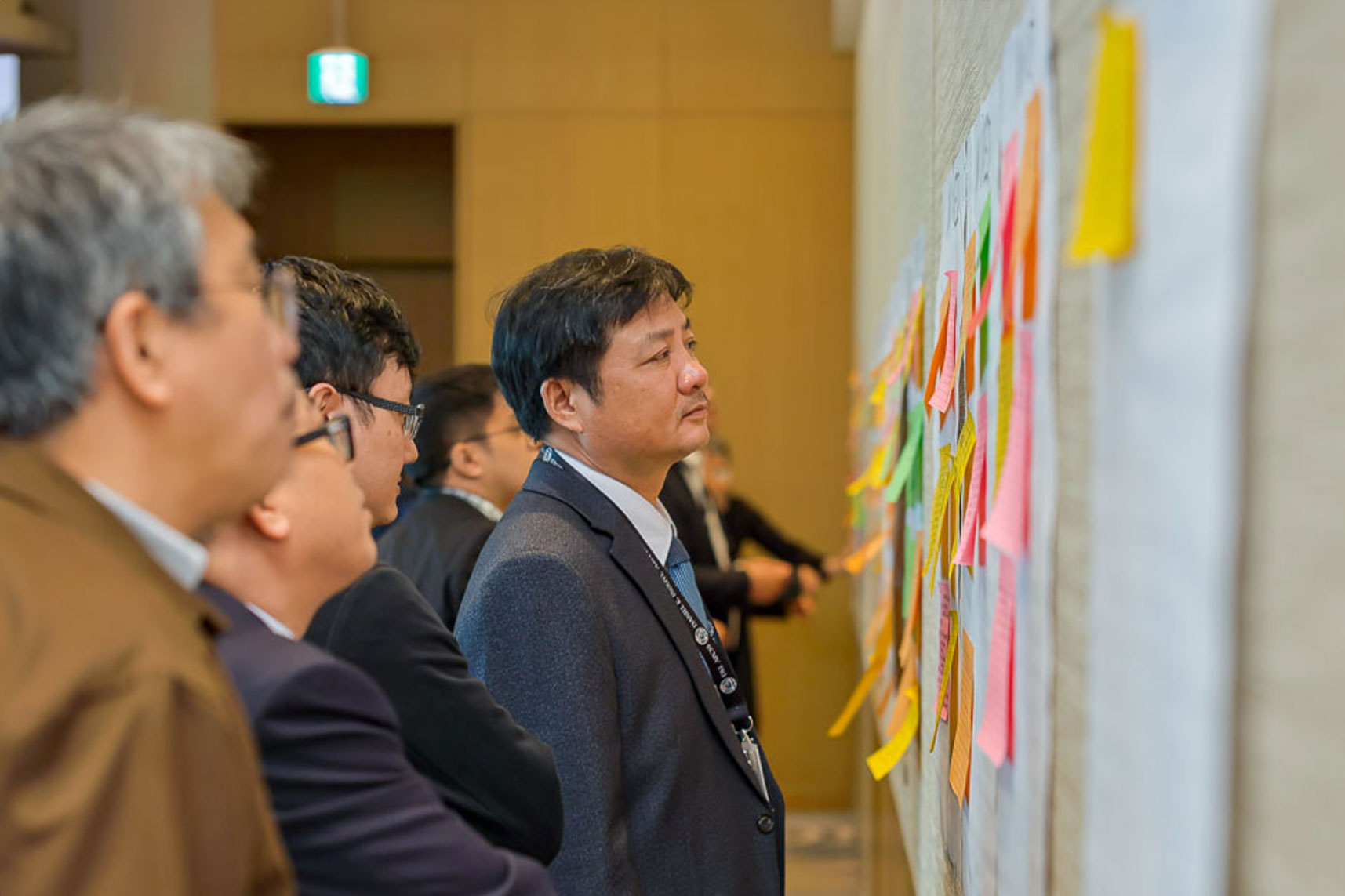
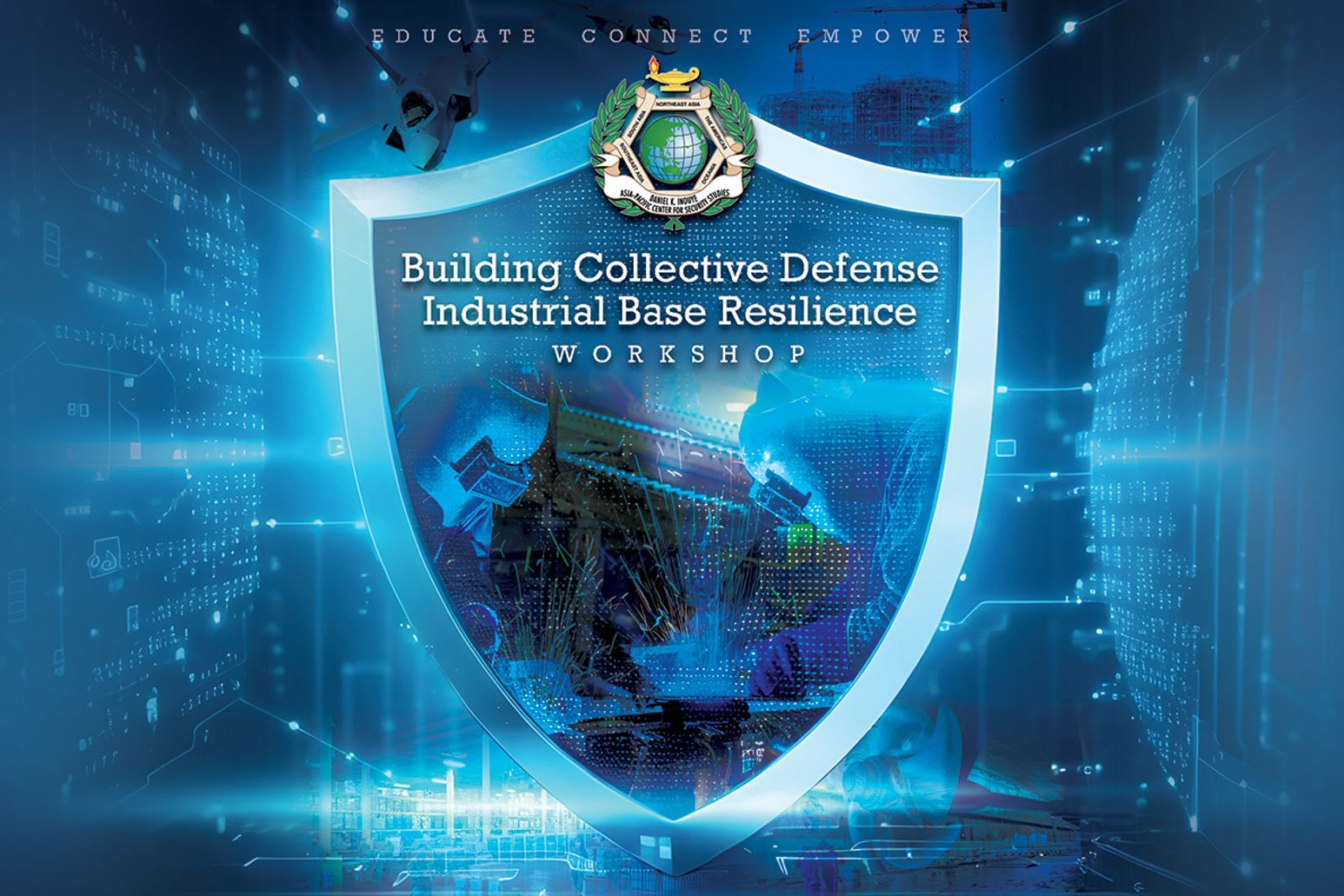
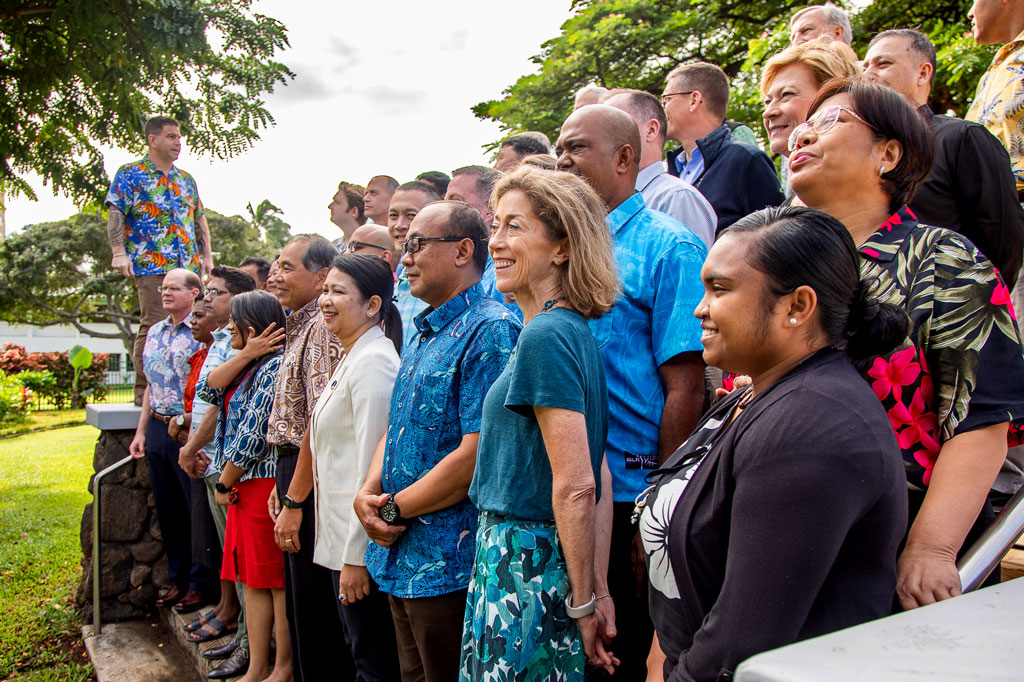




Leave A Comment